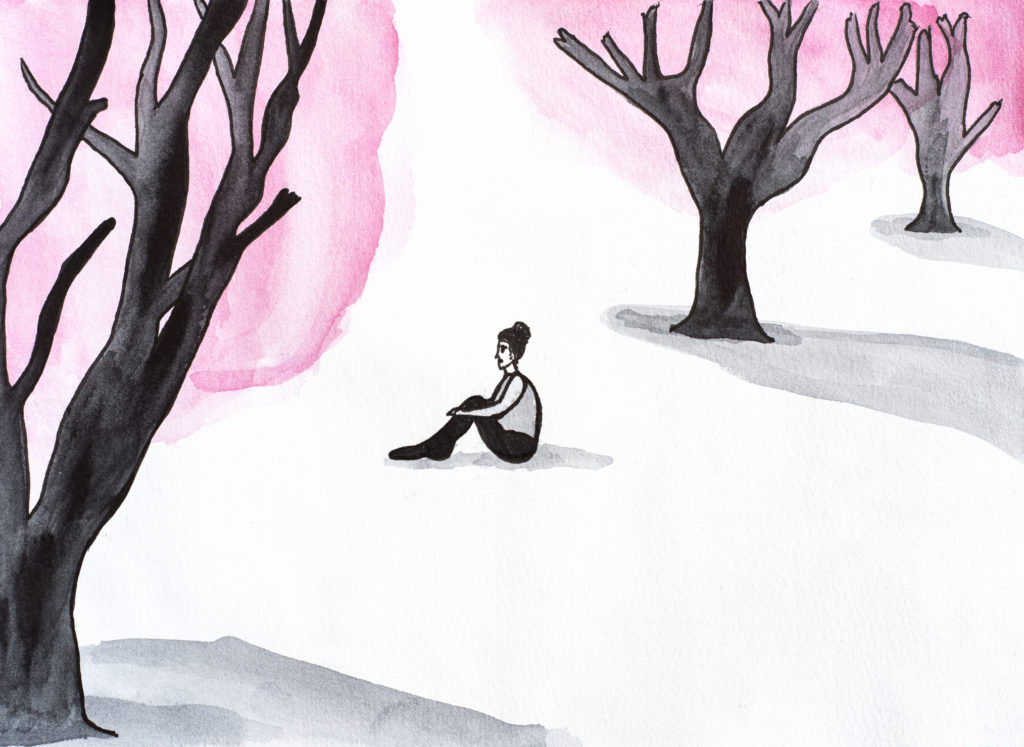In today’s fast-paced, technologically-driven society, feelings of isolation can manifest even when surrounded by people. The digital age has paradoxically connected us more than ever, while simultaneously alienating us from deep, meaningful connections. The hustle and bustle of daily life, combined with the overarching presence of social media, can result in moments when one feels alone in a crowd. If you’ve ever felt a pang of isolation or yearned for a meaningful interaction, you’re not alone. This article delves into understanding the root causes of these feelings, offers guidance on coping mechanisms, and emphasizes the importance of seeking connection even in seemingly disconnected environments.
The Root Causes of Isolation in the Modern Age
While feelings of isolation are not unique to our times, certain aspects of the modern age amplify these emotions. The 24/7 cycle of news and social media encourages superficial connections, comparisons, and sometimes even envy. People get engrossed in the lives of others, often neglecting their own emotional needs. In addition to technology, rapid urbanization has led to an environment where neighbors remain strangers, and communities lack cohesion.
A major factor contributing to feelings of isolation is the stigma around mental health. Many suffer in silence, fearful of being judged or misunderstood. Supportiv’s website allows you to talk to someone anonymously, offering a platform for those who need an outlet but are hesitant to reach out in their personal lives. The anonymity can provide a sense of safety for individuals to express their true feelings and seek understanding.
Isolation and its Effects on Well-being
Isolation isn’t merely an emotional or psychological state; it has tangible effects on one’s overall well-being. Chronic feelings of isolation can lead to depression, anxiety, and other mood disorders. The body can react by producing higher levels of cortisol, a stress hormone, which can lead to inflammation, weakened immune response, and other health issues.
Moreover, isolation can impact cognitive functions. A mind starved of meaningful interactions can face challenges in maintaining sharpness, clarity, and creativity. Just as the body requires varied nutrients to function optimally, the mind requires diverse interactions and challenges to remain agile and alert.
Seeking Connections in Disconnected Environments
While it’s essential to understand the causes and effects of isolation, it’s equally vital to identify ways to combat it. In the midst of a seemingly disconnected environment, how can one find genuine connections?
- Embrace Authenticity: In an age of filters, curated images, and highlights, being authentic is a rebellious act. Dare to be yourself. This not only fosters genuine interactions but also attracts like-minded individuals who value realness.
- Prioritize Quality over Quantity: Having a thousand virtual friends doesn’t equate to genuine companionship. It’s better to have a few deep, meaningful relationships than many shallow ones. Focus on nurturing relationships that bring joy, understanding, and mutual respect.
- Join Community Groups: Whether it’s a hobby club, a book discussion group, or a fitness class, joining community groups can provide a sense of belonging. Shared interests pave the way for natural conversations and potential friendships.
- Seek Professional Help: If feelings of isolation persist and affect day-to-day functioning, seeking help from therapists or counselors is vital. They can provide coping strategies, therapeutic interventions, and resources to combat feelings of isolation.
- Limit Social Media Usage: While it’s a tool for connection, excessive social media use can amplify feelings of isolation. Setting boundaries, having digital detox days, or engaging in offline activities can reduce dependence on virtual interactions.

The Role of Technology in Combatting Isolation
It’s easy to pinpoint technology as a significant contributor to feelings of isolation in the modern era. Yet, it’s essential to remember that the same tools can also be instrumental in alleviating those feelings. Video calls, for example, have bridged the geographical divide and allowed people from different parts of the world to maintain meaningful connections. Apps dedicated to mental well-being, meditation, and mindfulness offer resources and tools to navigate feelings of loneliness and isolation.
Furthermore, there are platforms designed explicitly for fostering friendships and connections based on interests, hobbies, and values. Many people have found lasting friendships and communities on such platforms, breaking the chains of physical and emotional isolation. The key lies in using technology mindfully, letting it be a bridge to human connection rather than a barrier.
Mindfulness and Presence as Tools Against Isolation
Being present in the moment is a potent antidote to feelings of isolation. When we are truly present, we engage deeply with our surroundings and the people in them. Mindfulness practices, such as meditation, deep breathing exercises, and grounding techniques, can train the mind to focus on the here and now, reducing feelings of detachment and disconnection.
When practicing mindfulness in interactions, conversations become richer. We listen more actively, engage more genuinely, and understand more deeply. This deep sense of engagement can mitigate feelings of being isolated, even in large crowds, by fostering a real connection with those around us.
The Power of Physical Activity in Reducing Isolation
Physical activity, whether it’s a walk in the park, a vigorous workout session, or a dance class, can be incredibly effective in combating feelings of isolation. Physical activity releases endorphins, which are natural mood lifters. Moreover, engaging in group activities or joining fitness clubs can also serve as a social outlet, providing opportunities to interact with others and form new connections.
Beyond the biochemical benefits, the act of moving our bodies can serve as a metaphorical movement out of the confinements of isolation. It is a reminder of our capabilities, strengths, and our innate ability to change our situations.
Reconnecting with Nature as a Balm for the Soul

Nature has an inherent therapeutic quality. The mere act of being in nature, listening to the rustling leaves, feeling the warmth of the sun, or watching a sunset can have a calming effect on the mind and soul. Nature reminds us of the interconnectedness of life, serving as a natural antidote to feelings of isolation.
Regularly spending time in nature, be it through hikes, nature walks, or simple picnics, can help ground us. It fosters a sense of belonging to something larger than ourselves, reducing the feelings of being adrift or alone.
Finding Solace in Solitude
It’s essential to differentiate between isolation versus solitude. While isolation is a state of feeling alone and desolate, solitude can be a conscious, fulfilling choice. Embracing moments of solitude can lead to self-reflection, inner peace, and a deeper understanding of oneself. When chosen mindfully, solitude can become a powerful tool for self-growth and healing.
There’s strength in seeking stillness amidst chaos, in understanding oneself amidst external noise. Instead of fearing solitude, see it as an opportunity to recharge, reflect, and reconnect with your inner self. Whether it’s through meditation, journaling, or simply sitting in nature, moments of solitude can provide clarity and perspective.
A Connected Conclusion
The journey from feeling isolated to feeling connected is deeply personal and can be challenging. However, by understanding the root causes, acknowledging the feelings without judgment, and actively seeking connections, one can navigate the complex landscape of the modern age. Remember that seeking help is a sign of strength, not weakness. Whether it’s through platforms like Supportiv, community groups, or personal relationships, there’s always a way out of isolation. And in moments when you choose solitude, may it be a path to deeper self-awareness and contentment.
